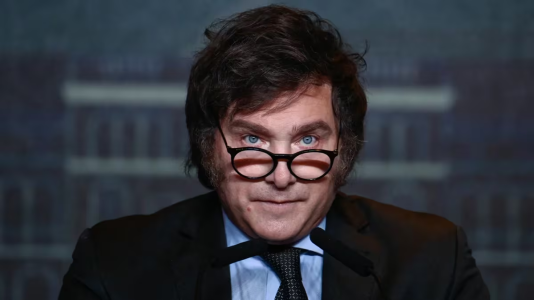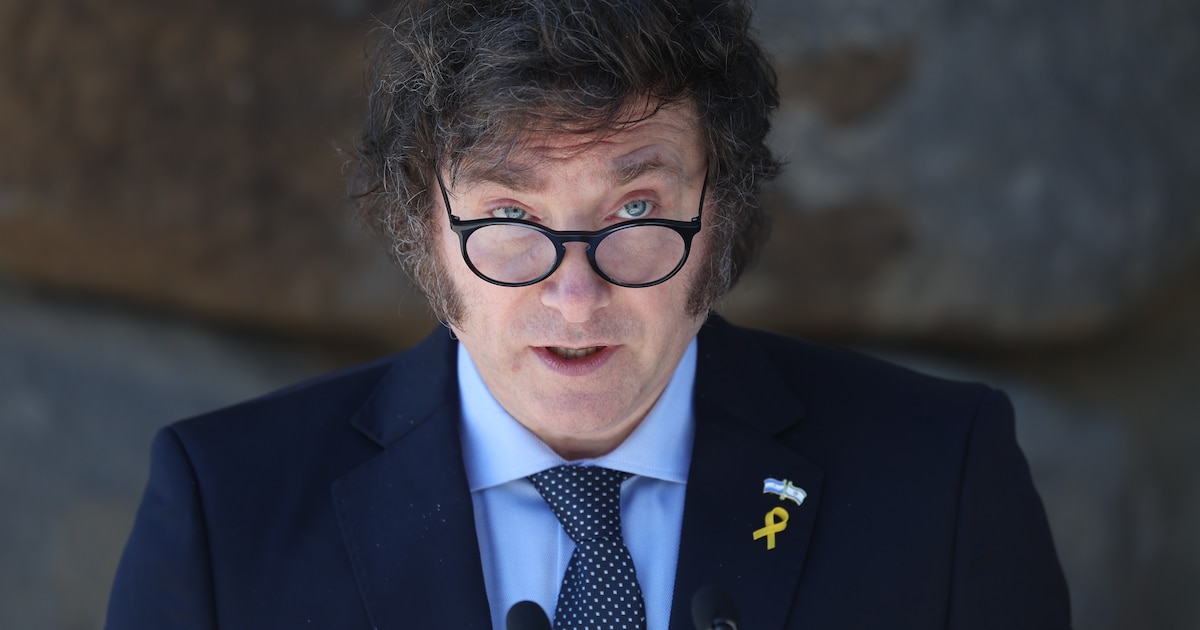MaxBTF
New member
"We do not like the idea of fixing minimum prices, it is a matter that should be addressed by the workers with their employers", assured Javier Milei. The presidential spokesman assured that they will also try to mediate in the negotiation with the teachers.
President Javier Milei ruled out setting a new minimum wage by decree and rejected a call for a national teachers' unionization. He argued that this decision corresponds to workers and employers, not to politicians. Congressman José Luis Espert supported this position. Meanwhile, the presidential spokesman, Manuel Adorni, announced that the teachers would be summoned for the next week without negotiation. The discussion on the minimum wage did not reach an agreement in a plenary meeting, affecting social programs and the Income Tax. The CGT criticized the government for preventing dialogue and blamed the employers for not making proposals.

Teacher's bargaining agreement yes or no?
Less than two weeks before the start of classes in some of the country's jurisdictions, sources from the National Secretary of Education let it be known that the five national teachers' unions (CTERA, UDA, AMET, SADOP and CEA) will be summoned next week to negotiate the minimum teachers' salary. This meeting, which was originally scheduled for last week, could unblock a start of the school year that up to now has been a conflictive one.
The national government wants to avoid that this meeting be called a "national teachers' meeting" because, according to the government, such a dialogue does not exist as such.Teacher's bargaining agreement yes or no?
Less than two weeks before the start of classes in some of the country's jurisdictions, sources from the National Secretary of Education let it be known that the five national teachers' unions (CTERA, UDA, AMET, SADOP and CEA) will be summoned next week to negotiate the minimum teachers' salary. This meeting, which was originally scheduled for last week, could unblock a start of the school year that up to now has been a conflictive one.
The national government wants to avoid that this meeting be called a "national teachers' meeting" because, according to the government, such a dialogue does not exist as such.
The unions had warned about a conflictive start of classes if salary negotiations were not opened and even interpreted that the Executive Branch was looking for a conflict. In fact, some jurisdictions began to anticipate a possible scenario of teachers' strikes, such as the province of Córdoba, which announced the implementation of a bonus for attendance (called "teacher professionalism item"). The measure is similar to the "classroom item" which reduced the adherence to strikes in the province of Mendoza, where it has been implemented for almost 8 years.
The last national teacher's union meeting, held in September last year, had fixed the minimum teacher's salary at 250 thousand pesos in December. This figure sets a floor for what a regular grade teacher should be paid in the whole country, with simple working hours and without seniority. With an accumulated inflation of 51.4% between December and January, these salaries were far out of line, denounce the unions.

 www.infobae.com
www.infobae.com
President Javier Milei ruled out setting a new minimum wage by decree and rejected a call for a national teachers' unionization. He argued that this decision corresponds to workers and employers, not to politicians. Congressman José Luis Espert supported this position. Meanwhile, the presidential spokesman, Manuel Adorni, announced that the teachers would be summoned for the next week without negotiation. The discussion on the minimum wage did not reach an agreement in a plenary meeting, affecting social programs and the Income Tax. The CGT criticized the government for preventing dialogue and blamed the employers for not making proposals.

Teacher's bargaining agreement yes or no?
Less than two weeks before the start of classes in some of the country's jurisdictions, sources from the National Secretary of Education let it be known that the five national teachers' unions (CTERA, UDA, AMET, SADOP and CEA) will be summoned next week to negotiate the minimum teachers' salary. This meeting, which was originally scheduled for last week, could unblock a start of the school year that up to now has been a conflictive one.
The national government wants to avoid that this meeting be called a "national teachers' meeting" because, according to the government, such a dialogue does not exist as such.Teacher's bargaining agreement yes or no?
Less than two weeks before the start of classes in some of the country's jurisdictions, sources from the National Secretary of Education let it be known that the five national teachers' unions (CTERA, UDA, AMET, SADOP and CEA) will be summoned next week to negotiate the minimum teachers' salary. This meeting, which was originally scheduled for last week, could unblock a start of the school year that up to now has been a conflictive one.
The national government wants to avoid that this meeting be called a "national teachers' meeting" because, according to the government, such a dialogue does not exist as such.
The unions had warned about a conflictive start of classes if salary negotiations were not opened and even interpreted that the Executive Branch was looking for a conflict. In fact, some jurisdictions began to anticipate a possible scenario of teachers' strikes, such as the province of Córdoba, which announced the implementation of a bonus for attendance (called "teacher professionalism item"). The measure is similar to the "classroom item" which reduced the adherence to strikes in the province of Mendoza, where it has been implemented for almost 8 years.
The last national teacher's union meeting, held in September last year, had fixed the minimum teacher's salary at 250 thousand pesos in December. This figure sets a floor for what a regular grade teacher should be paid in the whole country, with simple working hours and without seniority. With an accumulated inflation of 51.4% between December and January, these salaries were far out of line, denounce the unions.

El Presidente descartó un aumento del salario mínimo por decreto y la convocatoria a una paritaria nacional docente
"Eso de fijar precios mínimos no nos gusta, es una cuestión que deben abordar los trabajadores con sus empleadores", aseguró Javier Milei. El vocero presidencial aseguró que igualmente intentarán mediar en la negociación con los maestros

